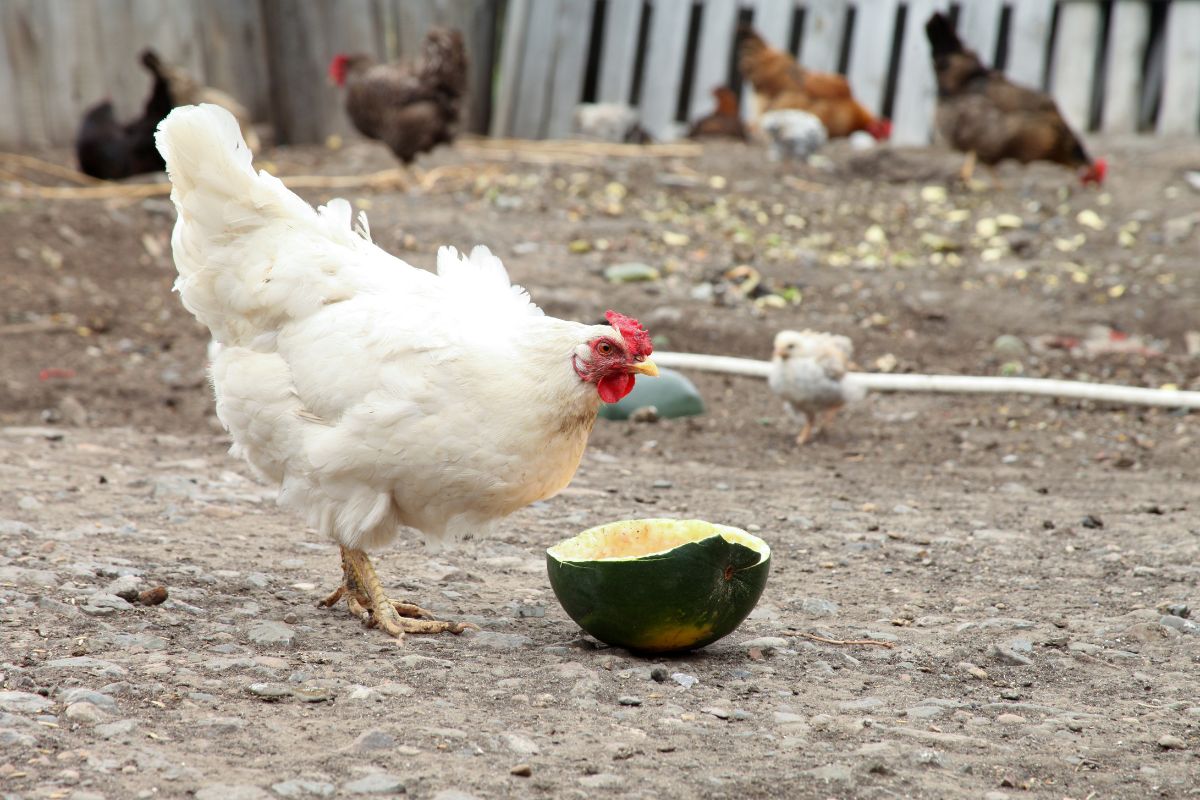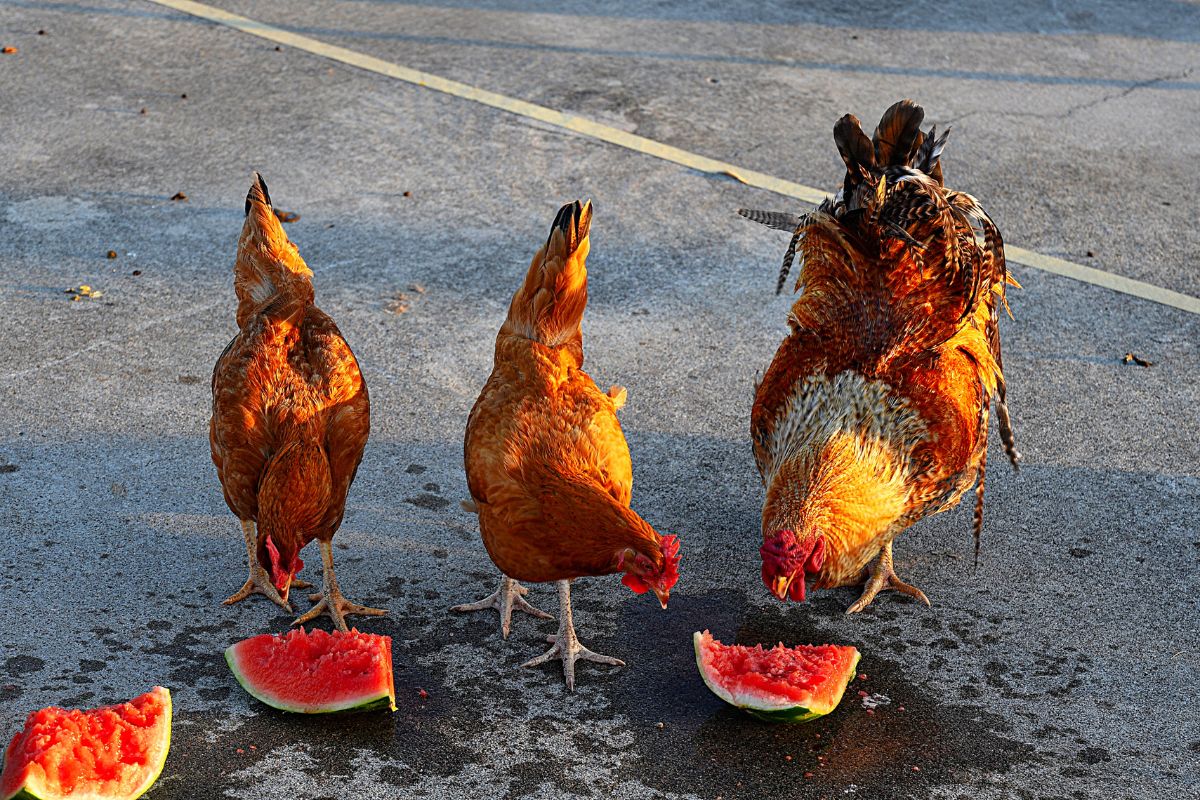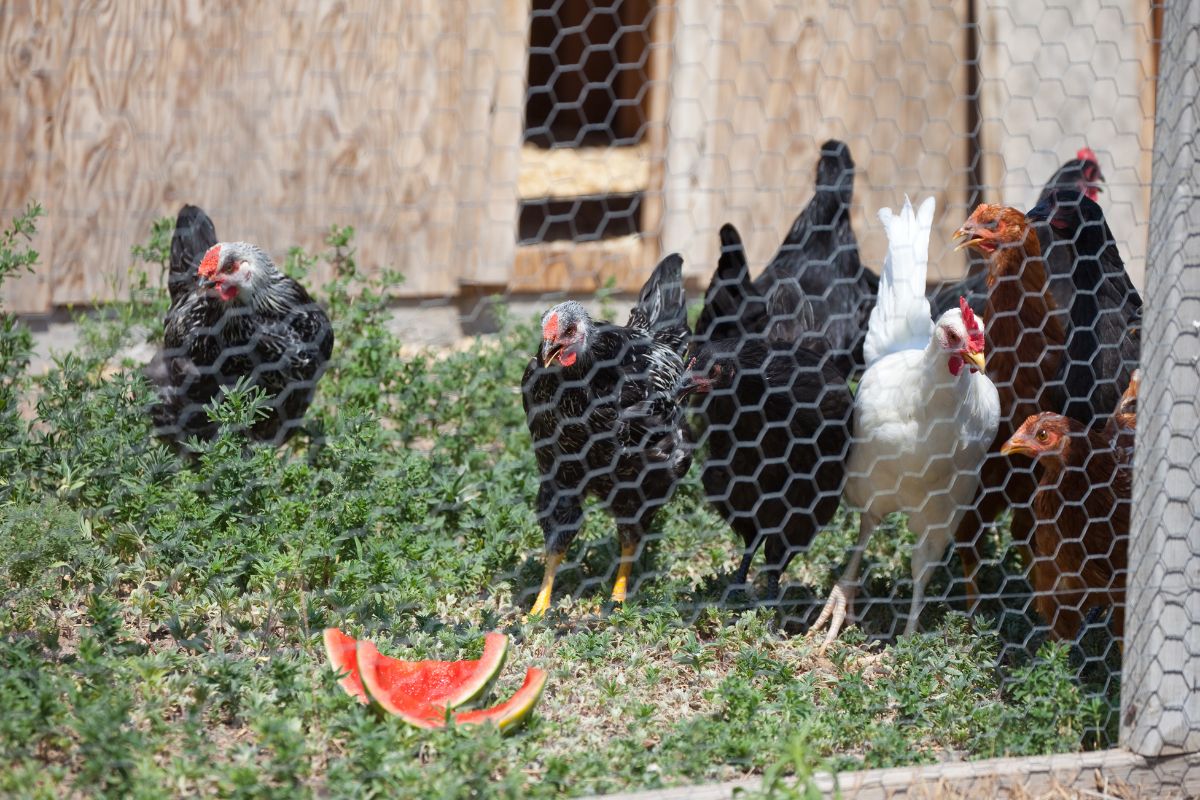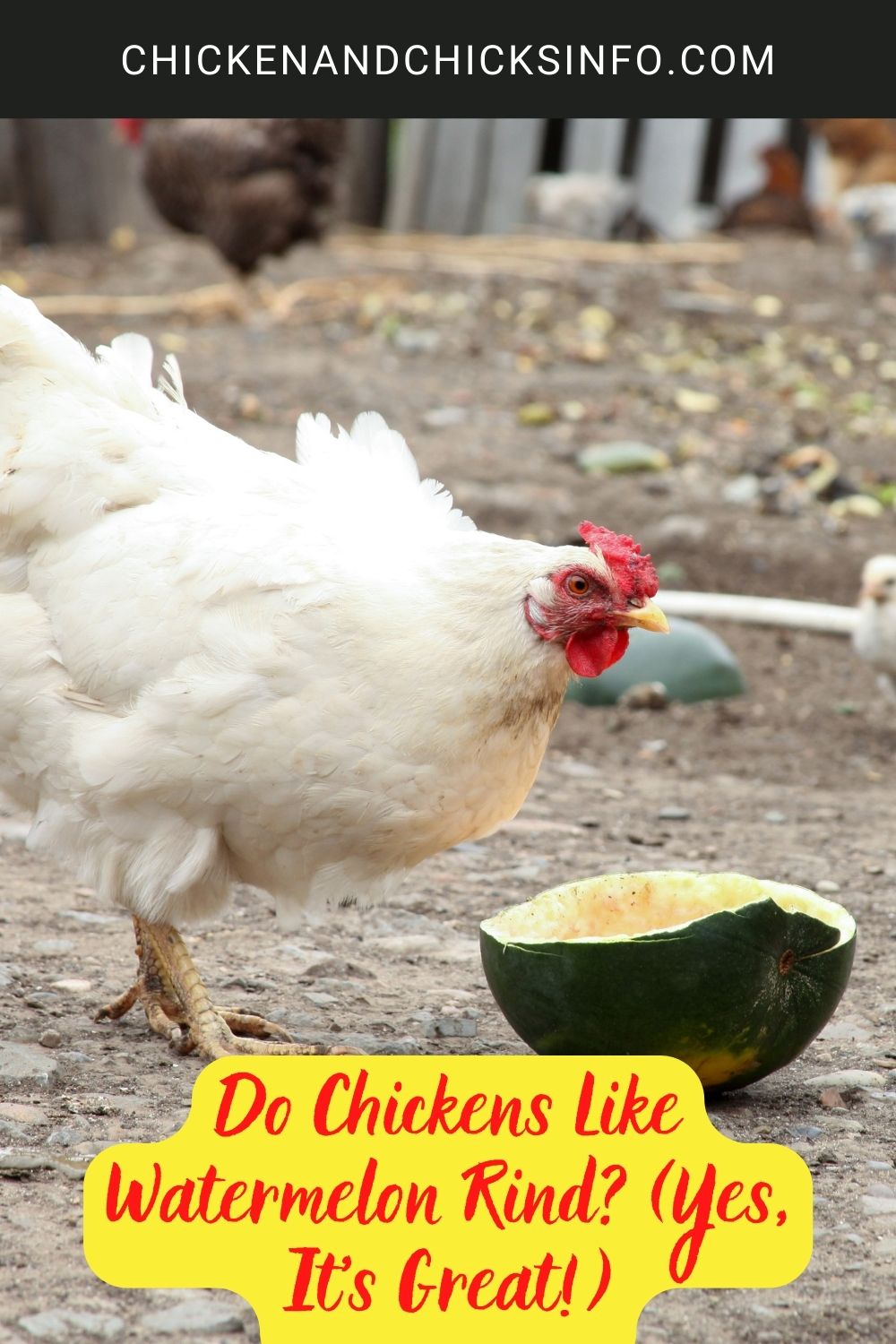
Chickens do like and eat watermelon rind, yes. Obviously, it’s not the most refreshing part of a melon. But it’s fine to give to your chickens and they’ll peck away till there is very little left, if any.
Jump to:
Can Chickens Eat Watermelons?
Yes, chickens can eat watermelons. It’s perfectly safe for them to do so, and in fact, watermelons are a great source of nutrition.
Watermelons are actually around 92% water. Which is why it’s such a refreshing fruit to eat in the summer - for both us and chickens.
They’re also packed with good nutrition containing high levels of vitamins A, B6, and C, along with various other antioxidants and amino acids.
On the flip side, they don’t contain much in the way of bad stuff either. Things like sodium, salt, and sugars are bad for chickens. All of which are low in watermelons.
Can You Feed Chickens Watermelon Rinds and Seeds Too?

Watermelon Rinds
According to Healthline, the rind of a watermelon is completely safe for both us and chickens to eat too. Although it’s typically too tough for us to eat, I know that I don’t even attempt to eat it.
That’s not the case for chickens.
The interesting thing about chickens is that they don’t have teeth. So, how do they eat hard stuff like melon rinds?
Well, they peck at foods to break them down and swallow them. Food then goes into their crop, which is like a storage area in their chests.
Then, when they’re ready - which is typically overnight - the food travels into their gizzard, which is a tough muscle that contracts and “chews” up food for digestion.
From a nutrition standpoint, the rind is rich in fiber. It’s known to aid digestion and promote healthy bowel movements.
Now, I admit, healthy chickens don’t need much help to poop - they poop on a regular basis. But some extra fiber in their diet can only be a good thing.
Watermelon Seeds
According to NDTV.com, watermelon seeds are a rich source of proteins, vitamins, fatty acids, and lots of other minerals and antioxidants.
Pretty powerful stuff considering most of us consider the seeds a nuisance. I don’t know about you, but I have always gone out of my way to avoid eating them.
The good news is, you don’t need to pick them out before giving a sliced watermelon to your chickens. If they gobble up the seeds it’s a good thing.
Do Chickens Like Watermelon Rind?
Now you know the benefits of giving your chickens the rind, the important question is whether or not they like the rind and will eat it.
Well, every chicken is different. But if you needed any convincing that chickens will happily peck away at the rind until it’s all but gone, just check out this video:
All they left behind was a paper-thin strip of skin that must have been too hard for them to break up and eat.
How to Feed Watermelon and Rinds to Chickens

If you were inquiring about the rinds because that’s the only part of the watermelon you’re willing to share with your chickens, then simply hand it over to them to deal with.
You can slice it up if you want, but as you saw from the video above, they enjoy having something to peck at.
It encourages their natural foraging behavior to give them foods they can peck at themselves and helps prevent boredom. So I always recommend giving foods without chopping them up too much.
If it’s a hot day - or if you’re feeling generous - you should give your flock a slice of watermelon including the flesh and seeds too. They love the flesh, and you’ll have a happy flock of chickens tucking into that watermelon.
What Age Can Chickens Eat Watermelon?
Given the chance, baby chicks just a few days old will try and eat scraps if you give them some.
It’s not generally recommended until they are 3-4 months old though.
Chicks require plenty of protein and other key nutrients to grow up strong and healthy, so stick to a quality starter feed and resist the treats until they are that age.
In Summary
There are loads of fruits and vegetables that are great for chickens, and watermelons are right up there as one of the best.
The flesh, seeds, and rinds are all fine for chickens. It’s a good way to reduce wastage, as we don’t eat the rinds, and the added bonus is that they get some extra fiber in their diet.
It’s a win-win. Next time you have some watermelon, give some to your flock and see how long it takes to polished off.
Resources
Watermelon Health Benefits, Risks, and Nutrition Facts - LiveScience
Are Watermelon Seeds Healthy? - NDTV.com





